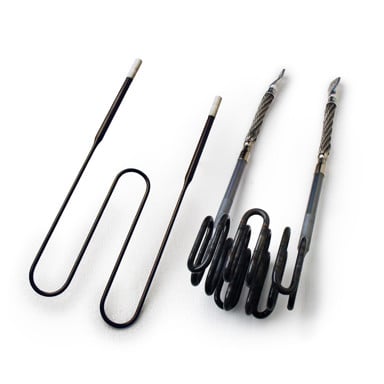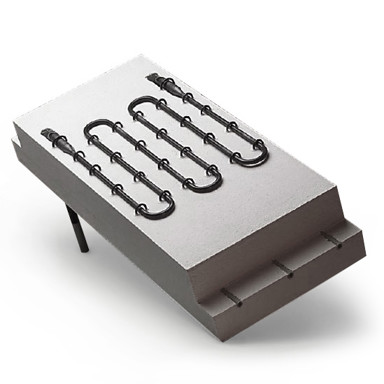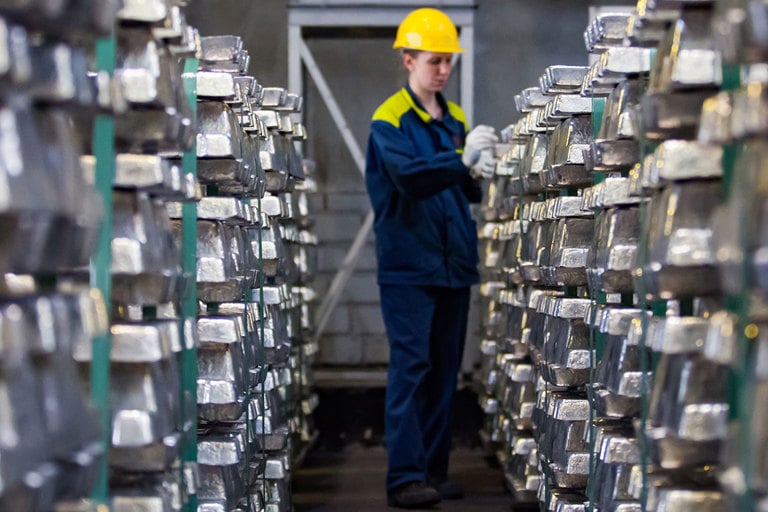Conventional heating systems for ladle preheating and holding have been really inefficient for many years
“Conventional heating systems for ladle preheating and holding have been really inefficient for many years” says Daniel Burton, Business Development Manager, Kanthal. “Gas burners lose most of the heat used to warm the ladle into the workshop and not into the ladle itself, which has a major effect on its efficiency.”
 Daniel Burton, Business Development Manager, KanthalThe energy inefficiency is even more marked at higher temperatures. “Gas burners can sometimes be relatively efficient at first, but once taken up to temperature with the intention of holding a high heating level, the inefficiency really starts to show. And this wasted energy has a significant impact on financial costs.”
Daniel Burton, Business Development Manager, KanthalThe energy inefficiency is even more marked at higher temperatures. “Gas burners can sometimes be relatively efficient at first, but once taken up to temperature with the intention of holding a high heating level, the inefficiency really starts to show. And this wasted energy has a significant impact on financial costs.”
Multiple challenges presented by gas heaters
The inefficiencies in this traditional heating method can also have a detrimental impact on the lifespan of the ladles. “Conventional gas burners, as used in the anode drying process, can actually cause hotspots. And these hotspots are often major factors in damage to the lining of the ladle that can shorten the labor lifetime of the equipment.”
And as with many of the processes in aluminum manufacturing, workplace safety is another area under constant focus with traditional heating methods. “Factories using conventional heating systems face constant pressure when it comes to the environmental aspects of this production process. Gas burners release carbon dioxide, monoxide and nitrous oxides into the factory atmosphere.”
With fossil fuel ladle preheating, the flame impinges on the refractory material which can introduce dangerous dust from these aluminous silicones into the factory environment.
Benefits of switching to electric
So how does installing electrical heaters in furnaces help combat these effects, and propel the aluminum production process to a more sustainable and cost effective future? “When we compare traditional heating processes with electric heating, it is clear that Kanthal can enable factories to become a lot more efficient,” says Daniel Burton. This is closely related to the changes impacted by electric heating elements, such as the Kanthal® Super MoSi2 elements and Superthal® heating modules as well as metallic elements on the design of the equipment used.
“We have a few different solutions for this, using different products depending on the size of the ladle and temperature, but every Kanthal solution enables us to close the ladle, which ensures that there is no atmosphere exchange while improving efficiency, quietness and uniformity.”
And it is that uniform heating that also enables factories to see measurable benefits in cost savings. “Because electrical heaters enable uniform heating we reduce the number of hotspots that can damage the ladle lining. This can result in ten to 15 percent additional labor lifetime, saving time, money, man hours and material.”
But energy efficiency and cost savings are not the only benefits. Workplace safety also sees an additional uplift with the reduction of carbon monoxide and other materials into the factory. “With electric heating there is no real movement of air in and out of the ladle, so you're not filling your factory with this silicate dust.”
I vantaggi di lavorare con Kanthal
- Elevata esperienza in un'ampia varietà di processi di riscaldo industriale
- Eccellente supporto tecnico per risolvere qualsiasi necessità
- Ampia gamma di elementi per adattarsi a diversi tipi di forni
Prodotti correlati
Qui puoi trovare l'offerta dei prodotti Kanthal
Impara con i nostri esperti
I nostri articoli più recenti




